8 Productivity Mistakes You’re Probably Making (Without Realizing It)
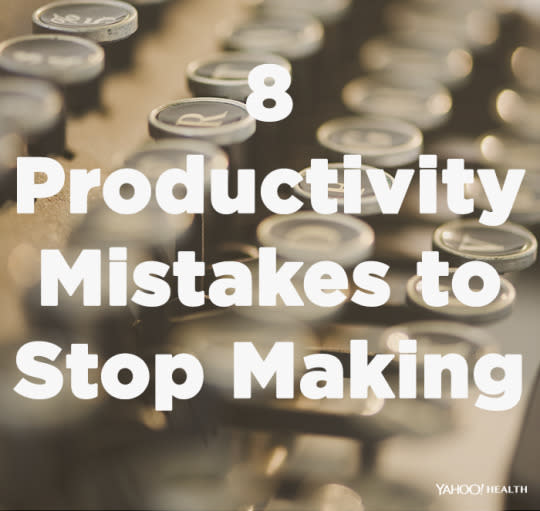
When you think you’re being productive … are you actually being counterproductive? (Photo: Getty Images)
In a world full of programs, apps, and gadgets thoughtfully developed to make us more productive, it’s kind of amazing how many of us have problems staying on task and effectual at work.
“When we think about productivity, we think about the input: ‘How quickly can I get something done?’” explains Peter Bregman, author of Four Seconds: All the Time You Need to Stop Counter-Productive Habits and Get the Results You Want. “But the real question is, ‘How powerful is the outcome I produced?’” When we think about productivity that way, it puts into perspective why doing less can actually be better than doing more.
Turns out, diligently crafting a million to-do lists and answering all your emails with lightning speed may be hurting more than helping. Here, Bregman details eight “productive” actions that are actually counterproductive, so you can figure out what’s holding you back and finally get it all done.
You’re making too many to-do lists.
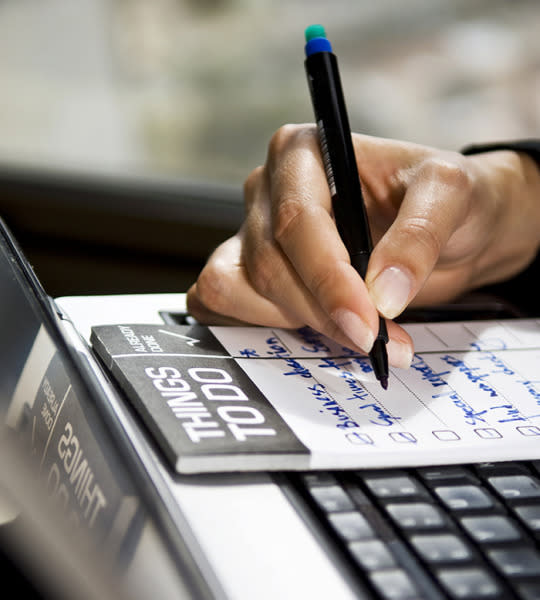
Photo: Getty Images
“Most lists are guilt lists more than they are to-do lists,” Bregman says. “They’re just a reminder of what we’re not getting done.” Instead of a list, manage your time in your calendar. “Your calendar has a limited amount of time in it, so look at what’s most important to get done in the time you have, slot it in, and get it done.” A long to-do list can just be overwhelming, and lead you to make poor choices, like getting the easiest things done first (instead of most important). When Bregman is insanely busy, he writes a short list on a piece of paper, and sets a timer for 15 minutes to knock out some easy stuff. “When the timer goes off, I put that away and pick one challenging thing to work on and work for the next 45 minutes. If I really get traction, I continue. If I feel exhausted, I take a little break.”
Related: How Procrastinating Can Increase Your Productivity … and Happiness
You send emails instead of calling (or vice versa).

Photo: Getty Images
We work in a world that revolves around email, but sometimes a phone call is the smartest and most productive way to get something done. It just depends on the task. “One thing that wastes time is not pausing to think,” Bregman explains. We’re all tempted to use our default method, but stopping to think about which is actually best suited for this task will get us choosing the most efficient way.
You feel compelled to respond to every email immediately.
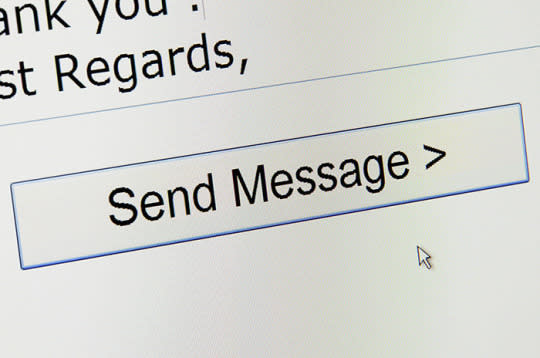
Photo: Getty Images
“It’s crazy to answer emails when you receive them,” Bregman says. “You’re much better off batch-processing them.” He suggests blocking off specific times to answer emails, making some tea (or whatever your choice may be), and sitting down to knock them out. Otherwise, you end up reading the same email five times, getting distracted before ever answering. Commit to actually doing something each time you touch an email, and handle it the first time.
You focus too much on just doing something.

Photo: Getty Images
One corporate-mindfulness training expert coined it “action addiction.” When we get overwhelmed with tasks, finishing anything — even if it’s not the most important — signals the reward centers in the brain. If we’re not mindful and completely aware of our priorities, we can get too focused on that instant gratification. Then, before you know it, it’s the end of the day and you’ve worked so hard … but have gotten nothing done. (We’ve all been there, unfortunately.)
Related: 7 Habits of Super-Productive People
You’re not using your vacation days.

Photo: Getty Images
It may sound counterintuitive (and many of us don’t take nearly enough vacation days), but getting away from the office will make you more efficient when you return. Getting space away from work “not only physically rejuvenates us but mentally reframes how we look at our lives in a way that makes it a lot fresher and allows us to be a lot more productive,” says Bregman.
You don’t take breaks.

Photo: Getty Images
This can actually make your output decline tremendously, Bregman warns. He compares it to working out: When you get too fatigued, your form suffers. Taking just one second to pause and readjust can make all the difference. The same thing applies at work. “Go outside and take a few deep breaths of fresh air for just five minutes,” Bregman recommends. Changing your focus and moving your body for a short period of time can give you that reset you need.
Related: What to Do When Your To-Do List Gets Out of Hand
You’re too focused on perfection.
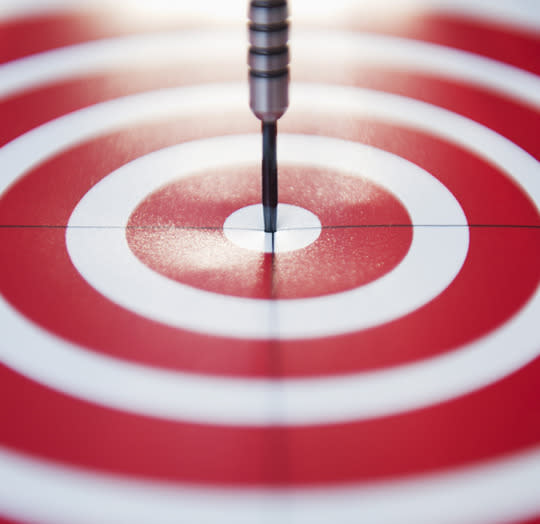
Photo: Getty Images
“The world rewards productivity, not perfection,” Bregman notes. “But sometimes it’s tough to restrain the beast of perfection.” Allow yourself some messiness — and pardon it in other people, too. In some cases, it’s better to get things done than obsessing over how to do it 100 percent perfectly (or, at least, what you think “perfectly” is).
You’re going into the office.
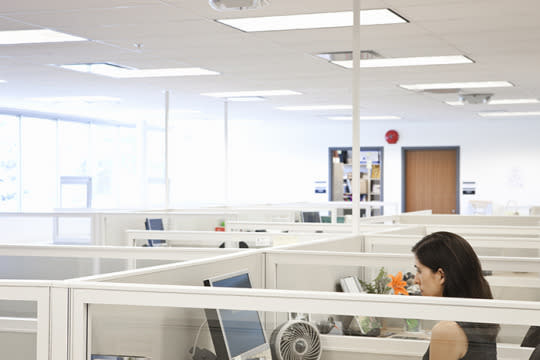
Photo: Getty Images
This may not be true for everyone, but studies have found that workers are actually more productive when they work from home. “For some people, working at home is a productivity mistake, they end up watching Netflix,” Bregman notes. “For others, working in the office can be a mistake.” Keep a journal, noting what’s working for you and what’s not. If you’re getting more important things done more quickly from home, it may be time to ask your boss about a flexible schedule — with cold, hard facts to support your request.
Read This Next: Overworked and Happy? The Unlikely Link Between Burnout and Job Satisfaction
Let’s keep in touch! Follow Yahoo Health on Facebook, Twitter, Instagram, and Pinterest.
